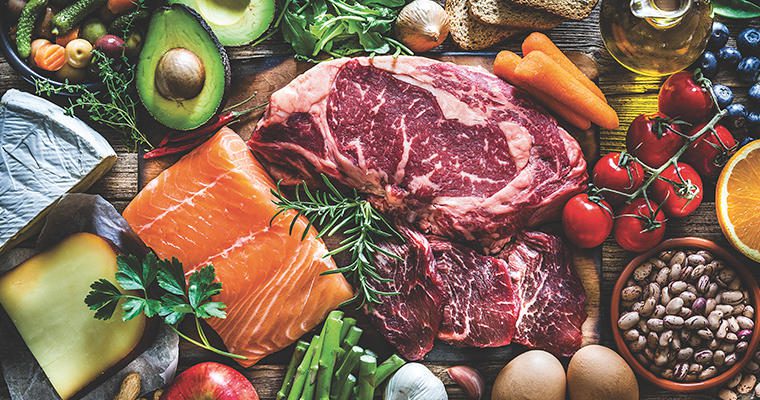Common interpretations of the word healthy include low-calorie, low- carbohydrates and sugar, low-fat, balanced meals, fresh, smaller portions, nutrient-rich, additive-free, high in antioxidants, farm to table and more.
To achieve their definition of healthy eating, individuals may opt to adhere to a diet such as Ketogenic (keto), Paleolithic (paleo), Whole30 or Mediterranean. Here are some things to know about each:
Ketogenic diet
The keto diet is very low-carb, and focused on getting the majority of calories from moderate protein and high fat. The macronutrients are divided into about 55-60% fat, 30-35% protein and 5-10% carbohydrates. The idea is to deplete the carbohydrate energy source so the body resorts to breaking down the protein and fat for energy.
Paleo diet
The paleo diet consists of lean meats, fish, fruits, vegetables, nuts and seeds. Food excluded from the diet are dairy products, legumes, grains, refined sugar, salt, potatoes and highly processed foods. The idea is to eat like early humans.
Whole30
The Whole30 program is a 30-day elimination diet that is intended to be a “reset”. Whole, unprocessed food is eaten including meat, seafood, eggs, vegetables, fruit, natural fats, herbs, spices and seasonings, and certain items are avoided such as real or artificial added sugar, alcohol, grains, legumes, dairy, carrageenan, MSG, sulfites, baked goods, junk foods or treats that include approved ingredients.
Mediterranean diet
The Mediterranean diet is more of a long-term lifestyle with foods rich in monounsaturated fats, fiber and omega-3 fatty acids, and consumption focuses on plant-based foods, such as fruits, vegetables, whole grains, legumes and nuts. Extra virgin olive oil is a vital part of the diet.
Students who want to adhere to a diet should work with a dietitian to stay healthy and achieve diet goals. Knowledge about diets also raises awareness for school foodservice employees, who are in contact with students daily.




























